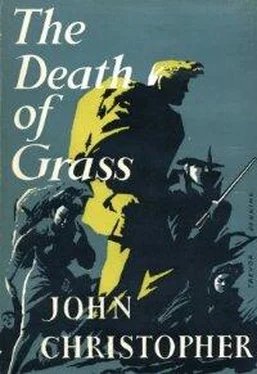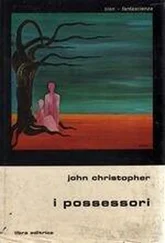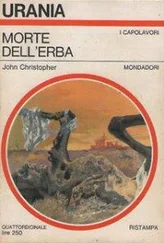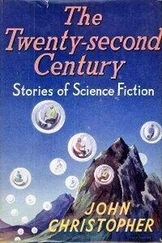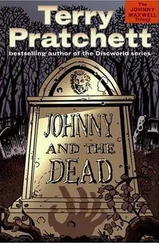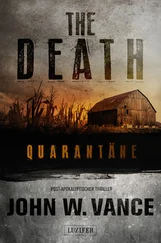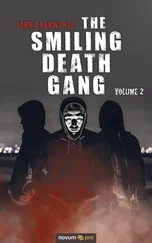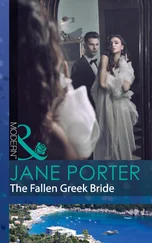That feeling now was more than doubly intensified. There were few things, John thought, so desolate as a railway line on which no train could be expected. And where the pattern of the moors seen from a moving car had been monotonous, the monotony to people on foot, struggling through rain squalls, was far greater. The moors themselves were barer, of course. The heather still grew, but the moorland grasses were gone; the outcrops of rocks jutted like teeth in the head of a skull.
During the morning, they passed occasional small parties heading in the opposite direction. Once again, there was mutual suspicion and avoidance. One group of three had their belongings strapped on a donkey. John and the others stared at it with amazement. Someone presumably had kept it alive on dry fodder after the other beasts of burden were killed along with the cattle, but once away from its barn it would have to starve.
Roger said: “A variation of the old sleigh-dog technique, I imagine. You get it to take you as far as you can, and then eat it.”
“It’s a standing temptation to any other party you happen to meet, though, isn’t it?” John said. “I can’t see them getting very far with that once they reach the Dale.”
Pirrie said: “We could relieve them of it now.”
“No,” John said. “It isn’t worth our while, in any case. We’ve got enough meat to last us, and we should reach Blind Gill tomorrow. It would only be unnecessary weight.”
Steve began limping shortly afterwards, and examination showed him to have a blistered heel.
Olivia said: “Steve! Why didn’t you say something when it first started hurting?”
He looked at the adult faces surrounding him, and his ten-year-old assurance deserted him. He began to cry.
There’s nothing to cry about, old man,” Roger said. “A blistered heel is bad luck, but it’s not the end of the world.”
His sobs were not the ordinary sobs of childhood, but those in which experience beyond a child’s range was released from its confinement He said something, and Roger bent down to catch his words.
“What was that, Steve?”
“If I couldn’t walk—I thought you might leave me.”
Roger and Olivia looked at each other. Roger said:
“Nobody’s going to leave you. How on earth could you think that?”
“Mr Pirrie left Millicent,” Steve said.
John intervened. “He’d better not walk on it It will only get worse.”
“I’ll carry him,” Roger said. “Spooks, will you carry my gun for me?”
Spooks nodded. “I’d like to.”
“You and I will take him in turns, Rodge,” John said. “We’ll manage him all right Good job he’s a little ’un.”
Olivia said: “Roger and I can take the turns. He’s our boy. We can carry him.”
She had not spoken to John since the incident of Jane and Pirrie. John said to her:
“Olivia—I do the arranging around here. Roger and I will carry Steve. You can take the pack of whoever happens to be doing it at the tune.”
Their eyes held for a moment, and then she turned away.
Roger said: “All right, old son. Up you get.”
Their progress immediately after this was a little faster, since Steve had been acting as a brake, but John was not deceived by it The carrying of a passenger, even a boy as small as Steve, added to their difficulties. He kept them going until they had nearly got to the end of Garsdale, before he called a halt to their midday meal.
The wind, which had been carrying the rain into their faces, had dropped, but the rain itself was still falling, and in a steadier and more soaking downpour. John looked round the unpromising scene.
“Anybody see a cave and a pile of firewood stacked inside? I thought not A cold snack today, and water. And we can rest our legs a little.”
Ann said: “Couldn’t we find somewhere dry to eat it?*
About fifty yards along the road, there was a small house, standing back. John followed her gaze towards it.
“It might be empty,” he said. “But we should have to go up to it and find out, shouldn’t we? And then it might not be empty after all. I don’t mind us taking risks when it’s for something we must have, like food, but isn’t worth it for half an hour’s shelter.”
“Davey’s soaked,” she said.
“Half an hour won’t dry him out And that’s all the time we can spare.” He called to the boy: “How are you, Davey? Wet?”
Davey nodded. “Yes, Dad.”
“Try laughing drily.”
It was an old joke. Davey did his best to smile at it. John went over and rumpled his wet hair.
“You’re doing fine,” he said. “Really fine.”
The western approach to Garsdale had been through a narrow strip of good grazing land which now, in the steady rain, was a band of mud, studded here and there with farm buildings. They looked down to Sedbergh, resting between hills and valley on the other side of the Rawthey. Smoke lay above it, and drifted westwards along the edge of the moors. Sedburgh was burning.
“Looters,” Roger said.
John swung his glasses over the stone-built town.
“We’re meeting the north-western stream now; and they’ve had the extra day to get here. All the same, it’s a bit of a shaker. I thought this part would still be quiet.”
“It might not be so bad,” Roger said, “if we cut north straight away and get past on the higher ground. It might not be so bad up in the Lune valley.”
Pirrie said: “When a town like that goes under, I should expect all the valleys around to be in a dangerous condition. It is not going to be easy.”
John had directed the glasses beyond the ravaged town to the mouth of the dale along which they had proposed to travel. He could make out movements but it was impossible to know what they constituted. Smoke rose from isolated buildings. There was an alternative route, across the moors to Kendal, but that also took them over the Lune. In any case if Sedburgh had fallen was there any reason to think things were any better around Kendal?
Pirrie glanced at him speculatively. “If I may offer a comment, I think we are under-armed for the conditions that lie ahead. Those, people with the donkey—we should probably have got a gun or two out of them, apart from the animal. They would hardly have had the temerity {123} 123 temerity: nerve
to travel as they were doing, unarmed.”
Roger said: “It might not be as bad as it looks. We shall have to make the effort, anyway.”
John looked out over the confluence of valleys and rivers.
“I don’t know. We may find ourselves walking into something we can’t cope with. It might be too late then.”
“We can’t stay here, can we?” said Roger. “And we can’t go back, so we must go forward.”
John turned towards Pirrie. He realized, as he did so, that, although Roger might be his friend, Pirrie was his lieutenant. It was Pirrie’s coolness and judgement on which he had come to rely.
“I think we need more than just guns. There aren’t enough of us. If we’re going to be sure of getting to Blind Gill, we shall have to snowball. What do you think?”
Pirrie nodded, considering the point. “I’m inclined to agree. Three men are no longer an adequate number for defence.”
Roger said impatiently: “What do we do then? Hang out a banner, with a sign on it: ‘Recruits Welcomed’?”
“I suggest we make a halt here,” John said. “We’re still on the pass, and we’ll get parties going both ways across the Pennines. They will be less likely to be downright looters, too. The looters will be happy enough down in the valleys.”
They looked again down the vista their position commanded. Even in the rain it was very picturesque. And, even in the rain, the houses down there were burning.
Читать дальше
